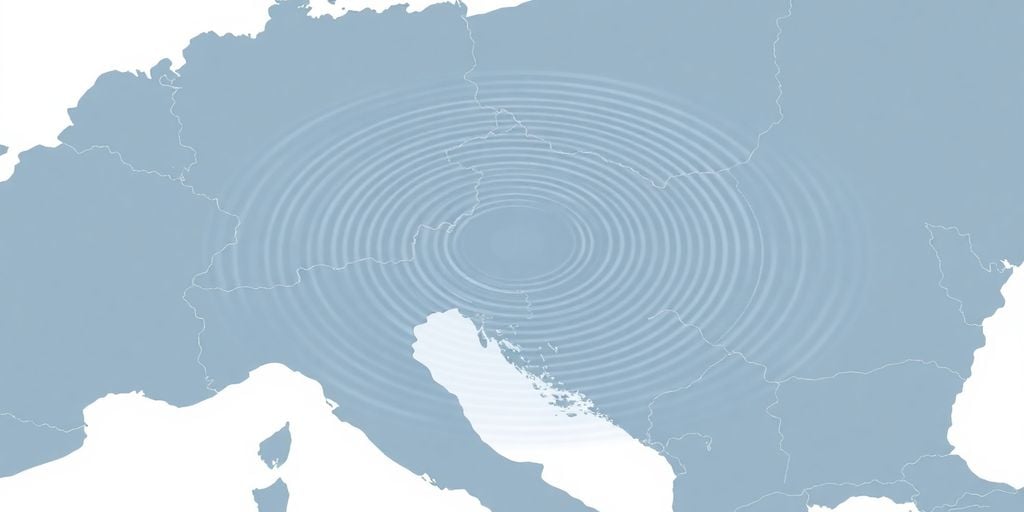A recent analysis by the International Monetary Fund (IMF) highlights the significant impact of global economic and financial shocks on the Western Balkan region, with a particular focus on North Macedonia. The study reveals how interconnectedness with the European Union and global value chains makes these economies vulnerable to external volatility.
Key Takeaways
- Euro Area Shocks Pose Significant Risk: Real shocks originating from the Euro area have a substantial effect on economic activity and trade within the Western Balkans.
- Financial Integration Matters: The impact of financial shocks is influenced by a country’s financial depth and its level of integration into global financial markets.
- Monetary Policy Influence: Both traditional and unconventional monetary policies in major economies can affect economic activity and inflation in the region, depending on the degree of monetary autonomy each country possesses.
- Energy Prices Drive Inflation: Global energy commodity price shocks are identified as a primary driver of inflation across the Western Balkan nations.
- North Macedonia’s Vulnerability: Due to its high integration into European global value chains, North Macedonia experiences particularly pronounced spillovers, especially through its industrial sector and trade.
Understanding the Impact
The IMF employed a global vector autoregressive (GVAR) model to meticulously estimate the spillovers of various shocks, including real, financial, monetary, and global commodity price fluctuations, across all countries in the Western Balkan region. This comprehensive approach allows for a nuanced understanding of how external events ripple through these economies.
Navigating Global Volatility
The findings underscore the complex interplay between global economic forces and the developing economies of the Western Balkans. As these nations continue to deepen their integration with the European Union, understanding and mitigating the impact of international shocks becomes increasingly crucial for sustained economic stability and growth. The study emphasizes that while integration offers benefits, it also necessitates robust policy frameworks to manage external vulnerabilities, particularly those related to energy prices and financial market fluctuations.
Sources
- Impact of International Shocks on North Macedonia and the Western Balkans: Republic of North Macedonia, International Monetary Fund.






